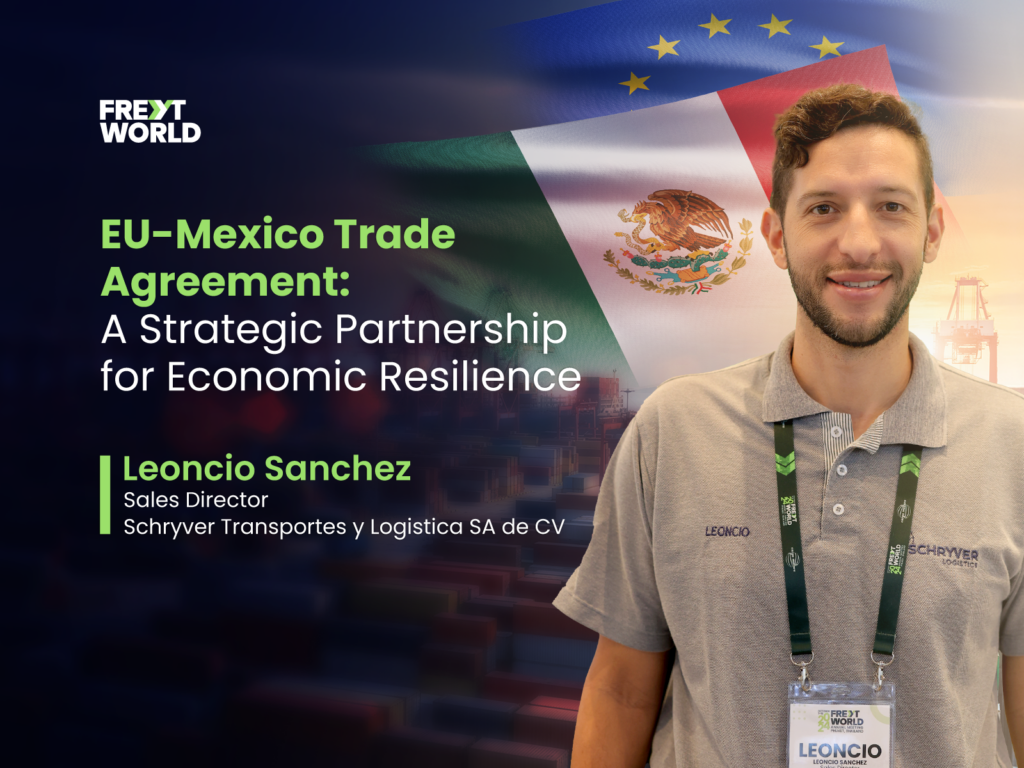By Stefan van der Sluys, CEO, Best Global Logistics Co., Ltd. (BGL)

In late January 2025, Thailand and the European Free Trade Association (EFTA) will formalize their Free Trade Agreement (FTA) in Davos, Switzerland. This key agreement, involving Iceland, Liechtenstein, Norway, and Switzerland, will redefine trade dynamics between Thailand and these European economies. Simultaneously, negotiators will conclude the EU-Thai FTA by the end of this year, enhancing trade and economic collaboration. With bilateral trade between Thailand and Europe surpassing $44 billion in 2024, these agreements represent a pivotal shift for logistics stakeholders.
The Thailand-EFTA FTA is a major step in enhancing economic cooperation. The agreement covers goods, services, investment, and intellectual property, aiming to reduce tariffs and eliminate trade barriers. Bilateral trade between Thailand and EFTA countries reached approximately $3.2 billion in 2024, with Thai exports growing by 12% year-on-year. The FTA's customs streamlining measures will reduce shipment delays by an estimated 20%, cutting overall logistics costs by up to 8% for businesses trading between these regions.
Key benefits of the agreement include:
- Tariff Reductions: Thai exports such as frozen shrimp, valued at $600 million annually, will benefit from reduced tariffs, which are set to decrease from 5% to zero. Similarly, machinery imports from EFTA countries, currently facing tariffs of 3%, will see cost reductions, enhancing trade efficiency.
- Market Access: EFTA countries, with a combined GDP of over $1.2 trillion, will gain streamlined access to Thailand’s market, particularly in high-value sectors like pharmaceuticals and green technologies. Renewable energy exports to Thailand, projected to grow by 15% annually, highlight the growing collaboration.
- Logistics Optimization: The FTA's customs streamlining measures will reduce shipment delays by an estimated 20%, cutting overall logistics costs by up to 8% for businesses trading between these regions.
Negotiations for the EU-Thai FTA, underway since 2022, hold the promise of bolstering Thailand’s trade footprint in Europe. The EU, Thailand’s fourth-largest trading partner, accounted for $41 billion in bilateral trade in 2024, including $24 billion in exports. Once finalized, the agreement could significantly enhance trade volumes and logistics activities.
Thailand-EFTA Free Trade Agreement promises:
- Enhanced Trade Volumes: Trade volumes between Thailand and the EU are anticipated to grow by 30% over the next five years, with key sectors such as automotive parts, valued at $4 billion in annual exports, set to benefit greatly.
- Regulatory Harmony: EU standards' simplified compliance processes will reduce administrative burdens, saving exporters an estimated $150 million annually. This change will particularly benefit Thailand’s agri-food sector, where exports to the EU are forecasted to grow by 18% post-FTA.
- Infrastructure Development: To support increased trade, the Thai government has allocated $5 billion for logistics infrastructure improvements, including the expansion of Laem Chabang Port, which will handle an additional 2 million TEUs annually by 2028.
While these agreements open new trade corridors, they also present challenges for the logistics sector:
- Regulatory Adjustments: Adapting to revised trade policies will necessitate investment in compliance training and technology. A survey by the Thai Chamber of Commerce found 65% of logistics firms plan to upgrade and digitalize their customs and compliance systems.
- Capacity Management: Rising trade volumes will test Thailand’s logistics capacity. The Thai Freight Forwarders Association projects a 15% increase in demand for warehousing space and transport fleets by 2027.
- Geopolitical and Economic Risks: Fluctuating fuel prices and currency volatility remain key concerns. In 2024, shipping a 40-foot container cost 7% more due to energy price spikes, highlighting the need for resilience planning.
The Thailand-EFTA and EU-Thai FTAs mark a transformative period for Thailand’s trade and logistics landscape. These agreements will unlock opportunities, from reduced tariffs to enhanced market access and infrastructure investments. The logistics sector must address capacity constraints, regulatory adaptations, and economic uncertainties to leverage these benefits. Innovation and collaboration will help logistics professionals enable sustainable growth and position Thailand as a global trade hub.
Freyt Consol Blog Contributor
Freyt World is a global logistics network uniting members from around the world. Our mission is to revolutionize global logistics through collaboration and innovation. Our platform goes beyond networking, enabling members to excel and grow together, featuring articles by logistics professionals for their peers. This series will cover industry-relevant issues and news, providing valuable insights for professionals in the field.



